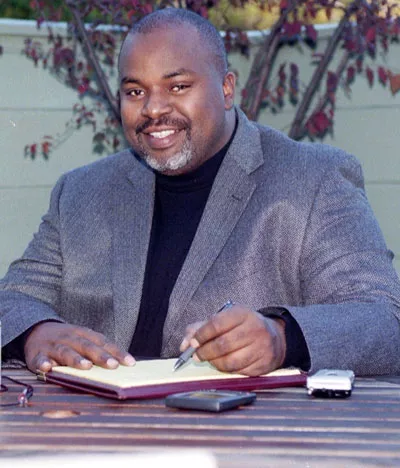Page 2 of 2
What needs to happen to slow down the spread of this disease?
We need to talk. Dialogue is key. There needs to be a shift in the attitudes and behavior connected with people's thoughts about HIV and AIDS. That's number one. Adults need to have honest dialogues amongst themselves about their sexual habits and indiscretions and proclivities. Parents need to have dialogue with their children about physical intimacy, about sex. The community needs to demand that their public officials are securing funds to revenue allocation for education and awareness funding. Congregations need to demand of their ministers to put HIV and AIDS at the front of their ministries and to stop the finger-pointing and accusations. We need all of that really to effectively address this disease.
And what are your thoughts on the "down-low" (a popular term referring to "straight" black men who have sex with men), which has links to the black church, and its being targeted as a major influence in the rise in HIV infection in black women?

- OMARTYREE.COM
- THE PEN IS MIGHTIER THAN THE SWORD: Editor Gil Robertson
That's certainly a factor. Gay men aren't getting out of bed with other men to go home to their wives. So obviously, that phenomenon, to some degree, contributes to the problem. Couples need to have honest discourse. If you suspect something, you need to speak on it. Women can no longer afford to hold on to their traditional attitudes where they're placing that type of trust in their men because [this] isn't something you can just go to the doctor and get a shot for.
Is too much attention being placed on AIDS in Africa?
AIDS in Africa is a big problem and it certainly deserves our attention; however, you gotta take care of home first. We have to recognize that HIV/AIDS is becoming as much of a problem here as it is in Africa and black people need to begin to start loving ourselves and stop the denial. We have to stop living in some sort of dream state. In a situation like this, it's something that needs to be faced head-on.
Can you blame the government?
I don't blame anybody. If my daughter is dying, then I'm gonna take whatever effective course of action I need to take to find a cure. Granted, there's precedence. One only needs to think of Tuskegee to know that we have reason to be distrustful. But at the same time, if you're not taking any measures, if you're letting your daughter sit in the room in the dark and slowly die, then you have to look yourself in the mirror and answer that question.
How has hip-hop influenced the fight against AIDS?
Hip-hop has had a profound role in shaping their attitudes about promiscuity and about sexuality that hasn't really been a good thing for the community. I think a lot of our hip-hop artists have been grossly irresponsible in not framing their messages responsibly with regards to safe sex and having an understanding about a lot of different social issues, AIDS just being one of them.
If more hip-hop artists came to the forefront to combat AIDS, would more young people listen?
Absolutely. Black people have survived the Middle Passage, slavery, Jim Crow, the Civil Rights Era; all of those things to get to the place that we are today and the only way we have been able to do those things is through mobilizing, coming together to effectively address a problem. I don't really know why there is such a disconnect in our community. I mean; we're talking about basic human life.
So, why aren't there any essays from the hip-hop community in the book?
None were interested. We approached a few and got crickets. No one said no, but no one said yes. Too busy being bling-bling. Yet, your people [their audiences that are making them rich] are dying in the street. That is ignorance.
What can the normal, everyday people do?
Communicate ... take the stigma out of it. There was one agency that was giving out T-shirts that said "I Have AIDS." If people would take the fear out of it, that would go a long way to getting people to come out of the closet, so to speak, to come out of the darkness and into the light about this particular issue.
Is your book a good starting point for that process?
We make [AIDS] real and familiar. We need to start looking at things for what they really are. To black people's defense, we have a lot to deal with: How am I gonna get these bills paid? Is Pookie graduating? Is my daughter pregnant? Is my mother sick? So when you come to a subject like HIV/AIDS, all you want to do is stick it in a corner and make it go away. But, unfortunately, the numbers are undeniable that this disease is a presence that's gained a foothold in the community and needs to be addressed. It's all of us.